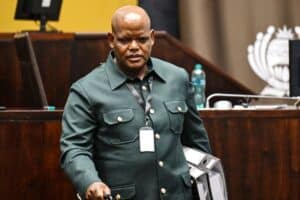The Bill in its current form has received backlashed from a number of civil society groups.

Parliament’s Portfolio Committee on Home Affairs is gearing up to finalise the Electoral Amendment Bill with further deliberations set to take place.
On Tuesday, the committee received a recap on the key issues presented last week, which included the signature requirement for independent candidates, deposits and seat allocation among other things.
The committee, which has been tasked to amend the Electoral Act 73 of 1998 to allow independent candidates to contest elections, is now set to meet on Friday to discuss outstanding issues and adopt a report regarding the Bill before referring it to the National Assembly.
ALSO READ: Political parties want to amend Electoral Amendment Bill as interim report adopted
“We will consider the A-list on Friday, as the team will be preparing it so that we can finalise the matter,” the committee’s chairperson, Mosa Chabane told MPs on Tuesday.
Chabane also requested a process of tabling the report on the Bill be faciliated by the time Parliament’s constituency period ends “so we allow the NCOP [National Council of Provinces] to start with its own process”.
The committee has until 10 December 2022, to complete its work after was granted a six-month extension by the Constitutional Court (ConCourt) in June.
Signatures quota
During Tuesday’s meeting, the committee decided to reduce the number of signatures required for independent candidates as it was agreed that the 30% quota (12 900 signatures) was too high.
Independent candidate are required to gather signatures as well as their identity numbers of voters who support the candidate to stand for elections and are required to pay a deposit, in which the amount will be regulated by the Electoral Commission of South Africa (IEC).
READ MORE: ‘New Electoral Act could just be a sneaky way to steal power’ from voters
While some organisations – in their submissions – proposed that the number of signatures should be same as the 1 000 signatures required for political parties, the quota has been brought down to 20%.
The 20% quota, backed by the African National Congress (ANC) and the Democratic Alliance (DA), translates to about 8 800 signatures.
Inkatha Freedom Party (IFP) MP Liezl van der Merwe, however, supported a quota of 10% or 15%, while Economic Freedom Fighters (EFF) MP Lorato Tito argued for the retention of the 30% requirement.
In addition, the committee were in agreement that independent candidates can contest multiple regions.
ANC MP Tidimalo Legwase previously argued that independent candidates should contest one province because they can only occupy one seat.
Civil society
The Bill in its current form has received backlashed from a number of civil society groups who believe that it is “fundamentally flawed”.
The organisations – including Defend Our Democracy, My Vote Counts and Rivonia Circle, among others – have threatened Parliament with legal action as they have argued that their submissions made to the ministerial advisory committee (MAC) were ignored.
RELATED: Electoral Act changes must pass urgently to avoid constitutional crisis before 2024 polls
The MAC, in its majority view, recommended a system that combined both a mixed single-member constituency and proportional representation (PR) system.
However, Home Affairs Minister, Aaron Motsoaledi and his department chose the MAC’s minority proposal and drafted the Amendment Bill that relied solely on a PR system.
Motsoaledi had appointed the MAC in February 2021, following a ConCourt ruling that declared the Electoral Act unconstitutional.






